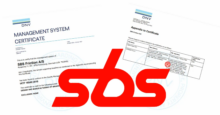Dealership management system update: One size does not fit all
 Dealership automation today is not optional and is considered a standard cost of doing business. Choosing the right dealer management system (DMS) is one of the most important investments that you can make. Choose the right DMS and you just might achieve management nirvana or, if you chose the wrong one, you might have issues that will affect your business in many negative ways for years to come.
Dealership automation today is not optional and is considered a standard cost of doing business. Choosing the right dealer management system (DMS) is one of the most important investments that you can make. Choose the right DMS and you just might achieve management nirvana or, if you chose the wrong one, you might have issues that will affect your business in many negative ways for years to come.
Just like every dealership is different, so are dealer management systems. There are high-end systems with all of the bells and whistles and then there are other DMS’s that are basic in their functionality and help dealerships with their basic core business processes. In between these two spectrums there are many options. And at the end of the day I have yet ran into a DMS where “one-size-fits-all.”
What is the best way to purchase a DMS? The answer is to do your homework and properly plan! Here are some suggestions on how to approach your investment in a DMS:
- Use a team approach. I’ve seen too many dealership owners make the DMS buying decision completely on their own and in the long term suffer for it. I strongly recommend that you put together a “task team” comprised of key individuals from all departments including the accounting/operations team. By doing so, you will get input for the buying decision from the people that will actually be implementing and using the system. In addition you will have “buy in” from your staff, which will only help improve the system implementation and utilization process.
- Determine your DMS requirements. You should be spending a considerable amount of time finding out what it is that you are looking for in a DMS. Find out from your team what is important to them to conduct business efficiently and profitably. If your dealership needs strong social media engagement and/or customer relationship management tools then look for DMS’s that have those features. If having strong accounting and internal controls is important for you then look for DMS’s with an integrated accounting system. If your CPA handles your books then perhaps a DMS with a QuickBooks back office solution may suffice. Overall find out what is important to you to run your business and then move forward in the DMS selection process.
- Ask your potential DMS provider lots of questions. Ask your potential DMS provider about the implementation and training process that they use and ask for a detailed outline of what the process looks like. Ask what training, in person or online, will be included. Ask about what data will be converted — especially your accounting data. Ask questions about forms programming costs as well. Ask every question that you can think of.
- Look at the total cost of the DMS purchase including disruption costs. In most DMS purchases there are a few types of costs involved. First, the upfront costs of purchasing the software. Second, consider the monthly fees for maintenance and support. And third, determine implementation and training costs, costs for forms, parts data subscriptions and a host of other value added features and services that can drive up the total cost of the dealer management system.
And let’s not forget about what I call “dealership disruption” costs which can cost you more than you ever thought possible. A poorly planned and rushed implementation can cost you big time. This is where having an internal implementation team made up of your staff can make the process so much better. In motorcycle racing terms, sometimes you have to slow down to get ahead. Try to anticipate every possible issue that you can ahead of time. I have seen poor implementations create chaos and lower productivity and efficiency where the effects lingered for years.
- Check a DMS vendor’s references. Again: Do your homework when deciding up on a DMS for your dealership. Your software supplier is always happy to give you the names of dealerships that you can call for a DMS reference. Go beyond this list. Call other dealers that you know from dealer meetings and or 20-group participation. Call dealers you may not know. Use social media like Groups on LinkedIn that are industry specific to get information regarding what the experience of other dealers was like. Ask other dealers what hiccups or issues they faced when they adopted a particular DMS. This process can unveil issues that you did not consider in your initial buying/planning process. Like Nike says—just do it!
Buying a dealer management system is one of the most expensive decisions that your dealership will make. This decision should not be taken lightly. The planning and homework that you do on the front end may save you much time, energy and money and will pay off big time down the road.
Forrest Flinn, MBA, PHR, SMS has been in the motorcycle industry for nearly 20 years and has been a true student and leader serving in various capacities. He previously worked as an implementation consultant for Lightspeed and as a general manager with P&L responsibility for a large metro multi-line dealership. Currently Forrest is the managing partner and chief visionary for a consulting firm that specializes in outsourced accounting, human resources, social media strategy, dealership operations consulting and Lightspeed/EVO training.
Contact: forrest@powersportsmc.com









Very nice article, every point is valid.